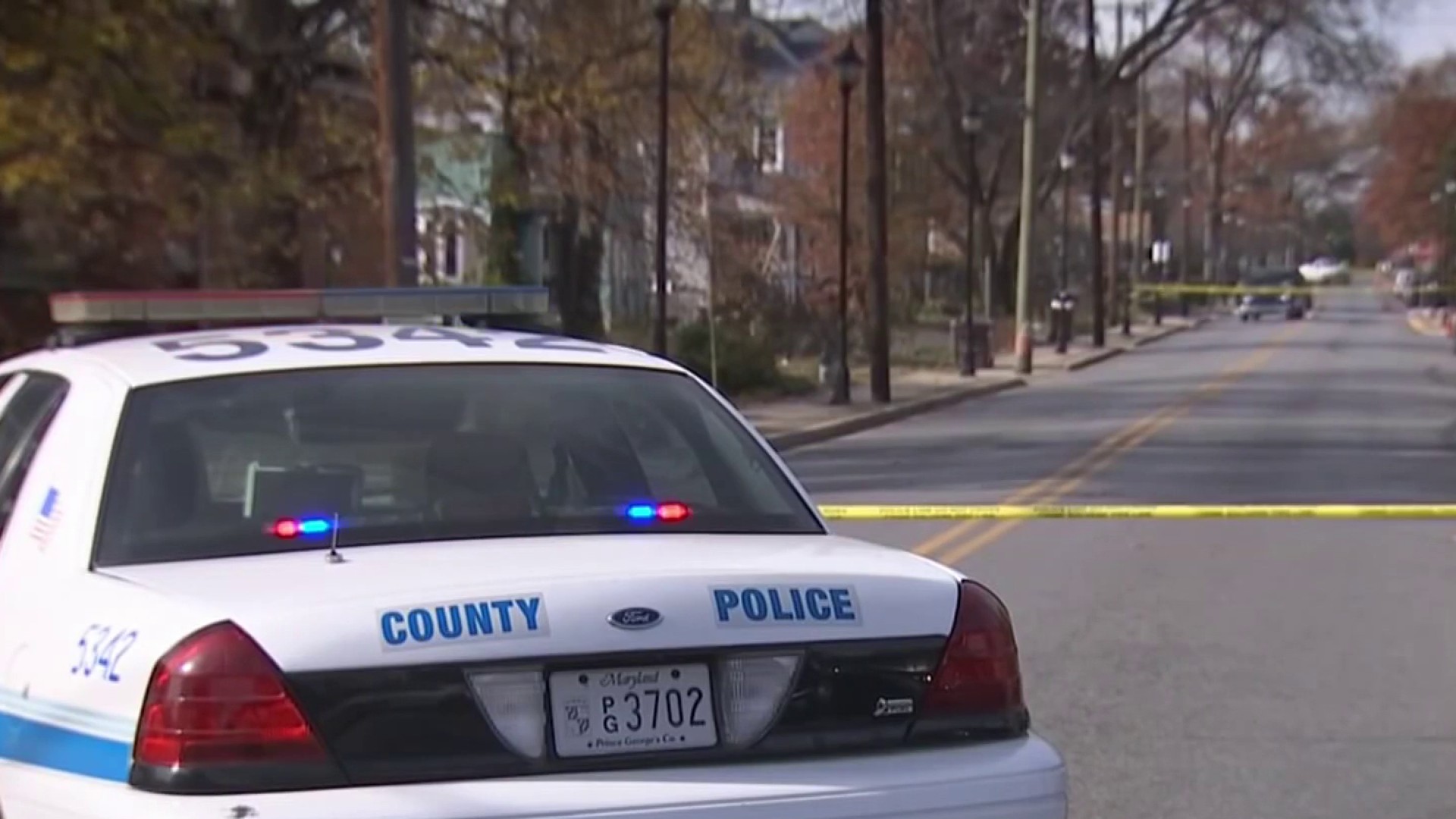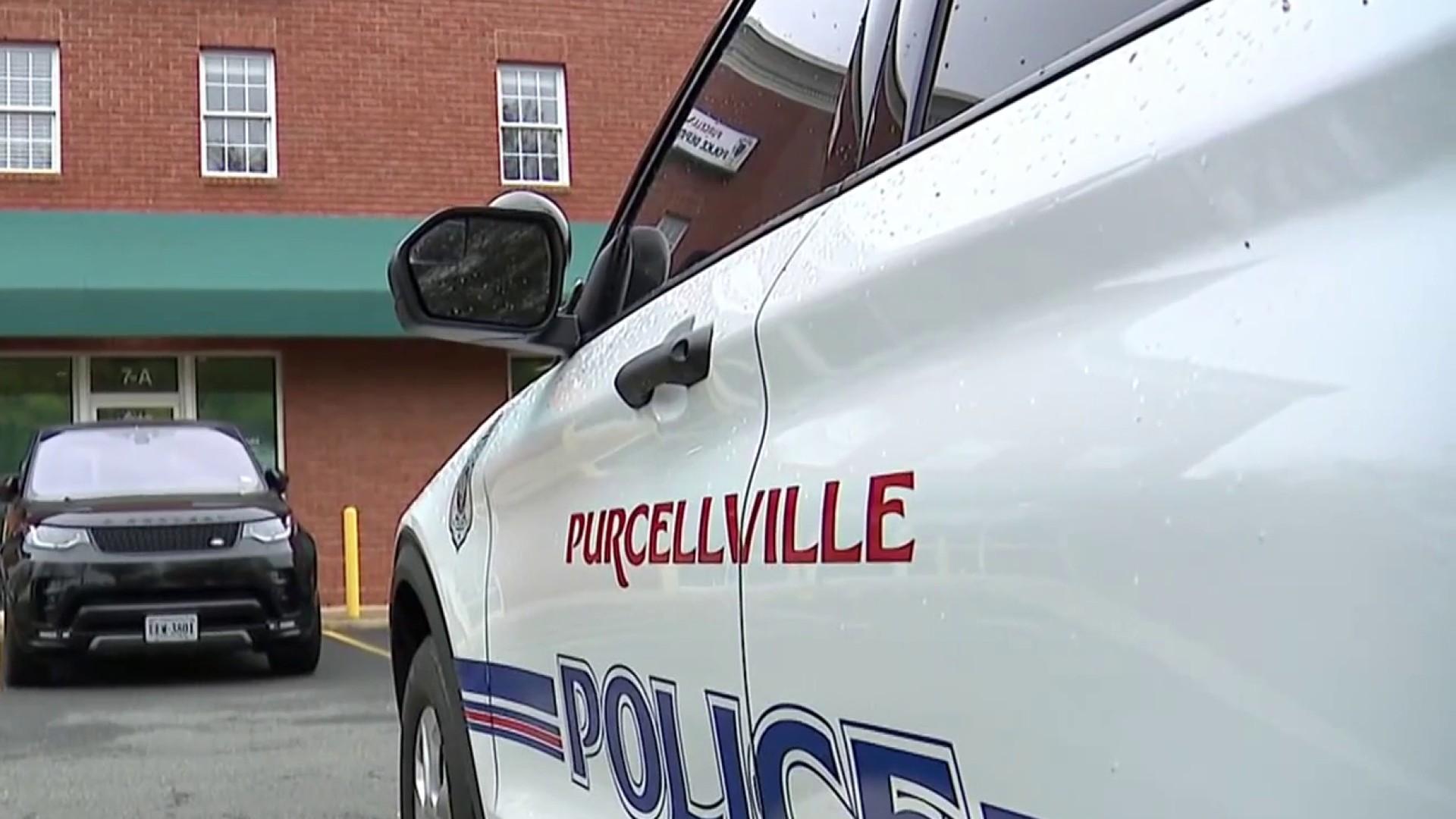Northern Virginia Bureau Chief Julie Carey with reaction to the use of a stun gun on an inmate at Fairfax County jail.
The Fairfax County Sheriff's Office released video of deputies trying to restrain an inmate who later died.
In the video, deputies are seen trying to restrain Natasha McKenna in a chair so she could be transported to Alexandria. The deputies, dressed in bio-hazard suits, can be heard telling McKenna to "stop resisting" and to "hold still." McKenna can be heard breathing heavily as deputies work to restrain her.
She fought deputies for more than 17 minutes and was shocked four times. After McKenna loses consciousness, employees of the sheriff's office perform CPR. McKenna died five days later.
Fairfax County Sheriff Stacy Kincaid met Thursday afternoon with an attorney representing McKenna's family to offer personal condolences and explain why she felt it was important to release the video.
Local
Washington, D.C., Maryland and Virginia local news, events and information
"There has been so much inaccurate information that was being put out, and it was important that we were able to show exactly both the professionalism and the restraint and the patience that the deputies demonstrated in trying to get Ms. McKenna treatment and back to Alexandria," she said. "That's where she needed to be."
She said she also wanted to convey to the McKenna family that their loved one's death has spurred change.
"Natasha McKenna did not die in vain, and there will be something good that comes of this tragedy and that is a better system that's going to be set up in terms of how we treat those with mental illness," Kincaid said.
In the wake of the incident, Tasers are no longer being used at the jail. A team from the sheriff's department has traveled to see model programs designed to divert mentally ill offenders from jail and into treatment. Fairfax County has a launched "Diversion First" task force to begin routing more offenders with mental health issues to other programs rather than locking them up. More sheriff's deputies are also receiving Crisis Intervention Team training to help them better understand and handle mentally ill offenders.
Pete Earley, a nationally-known mental health activist, blogger and author of the book, "Crazy: A Father's Search Through America's Mental Health Madness," watched the video shortly after it was released.
"My gut reaction as a parent of someone with a mental illness was, I just felt sick to my stomach. That could have been my son," he said. "But I was surprised. I thought they were professional. This was the least violent forced cell move I'd ever seen. "
Still, Earley strongly believes McKenna never should have been locked up in the first place, and he didn't see anything in the video that justified the SERT team's approach.
The video does not match the description of McKenna's behavior found in the commonwealth's attorney's report of the incident that was released earlier this week, Earley said. Ray Morrogh reported McKenna exhibited "super human strength" in her struggle with deputies.
"The prosecutor is telling us on one hand that this woman needed to be restrained and tasered because she was so out of control," Earley said. "And then on the other hand, we're seeing a tape where she comes out (of her jail cell). She's saying, 'You said you weren't going to hurt me.' She's immediately taken to the floor. There's not one moment where she's in control. There's never one moment where these officer's lives are being threatened."
Earley believes the video makes it clear the deputies should not have used a Taser on McKenna.
McKenna's death was ruled a tragic accident by Fairfax County commonwealth's attorney Raymond F. Morrogh earlier this week.
"It was Ms. McKenna's severe mental illness, coupled with the tremendous physical exertion she put forth over an extended period of time struggling with deputies that resulted in a cascade of lethal chemical reactions inside her body," Morrogh wrote.
The medical examiner previously found McKenna's death was accidental. The medical examiner said the cause of death was excited delirium, associated with physical restraint including use of conducted energy device. Schizophrenia and bipolar disorder were listed as contributing causes.
"It's a horrific tale of suffering," Morrogh said. But the investigation determined deputies did nothing wrong.
McKenna's death has been one of two big cases under the spotlight in Fairfax County for law enforcement’s use of force. In the case of a Springfield man shot by a Fairfax County officer during a standoff, a special grand jury charged the officer with murder.



